Two Studies on Greenland Reveal Ominous Signs for Sea Level Rise – the New York Times
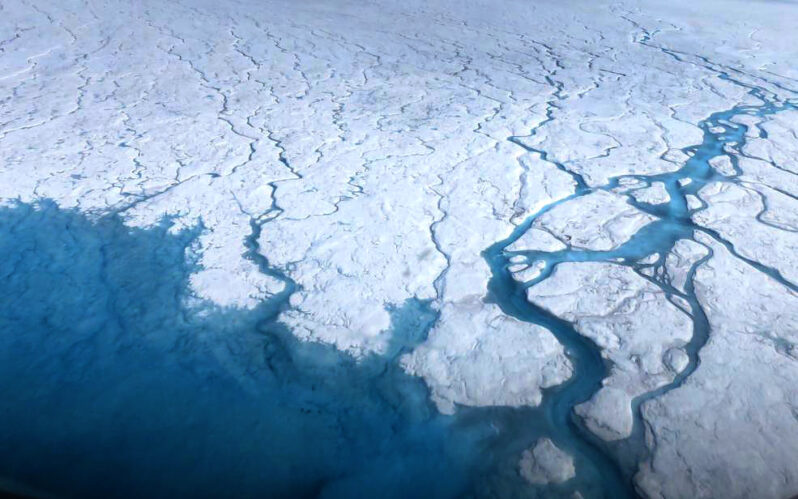
Greenland’s mountain glaciers and floating ice shelves are melting faster than they were just a few decades ago and becoming destabilized, according to two separate studies published this week. The island’s peripheral glaciers, located mostly in coastal mountains and not directly connected to the larger Greenland ice sheet, retreated twice as fast between 2000 and 2021 as they did before the turn of the century, according to a study published on Thursday. “It got a lot harder to be a glacier in Greenland in the 21st century than it had been even in the 1990s,” said Yarrow Axford, a professor of geological sciences at Northwestern University and a co-author of the paper, published in the journal Nature Climate Change…
What the Melting of Antarctic Ice Shelves Means for the Planet – Inside Climate News
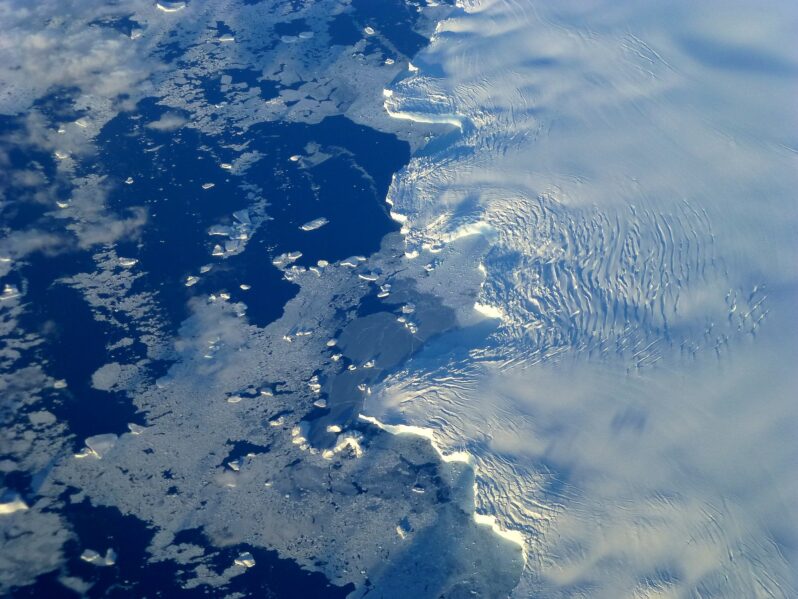
Antarctica’s ice shelves are the gatekeepers between the continent’s glaciers and the open ocean. As the planet warms, these shelves shrink, exposing more and more ice, which leads to more melting. This frozen continent rests under a massive ice sheet averaging more than a mile thick. But a recent study in Science Advances found that Antarctica had 68 ice shelves that shrunk significantly between 1997 and 2021, adding up to about 8.3 trillion tons lost during that time…
West Antarctic ice sheet faces ‘unavoidable’ melting, a warning for sea level rise – the Washington Post
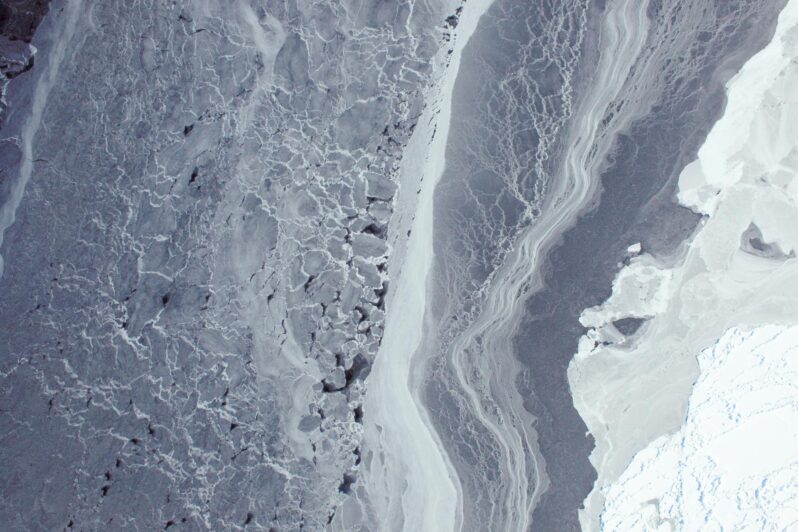
Accelerating ice losses are all but “unavoidable” this century in vulnerable West Antarctic ice shelves as waters warm around them, according to new research. And the analysis could mean scientists were too conservative in predicting about one to three feet of sea level rise by 2100…
Greenland’s ice shelves hold back sea level rise. There are just 5 left – the Washington Post
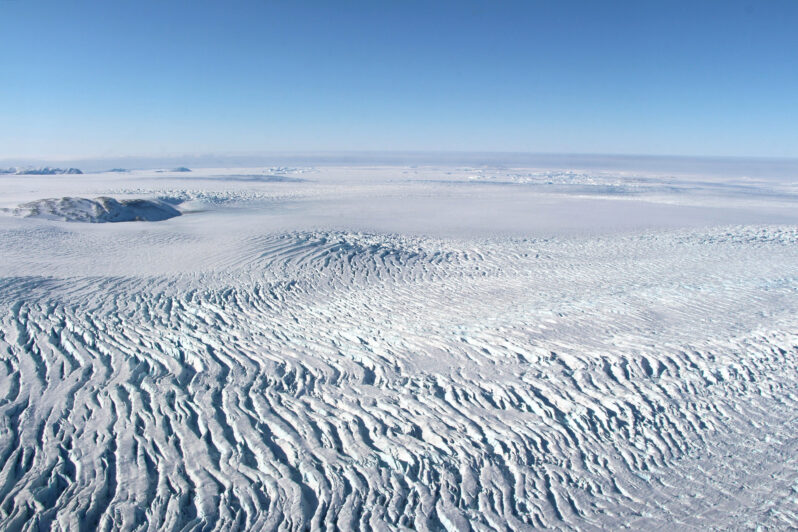
And now there are only five large shelves left, stretching out from their fjords toward the Greenland Sea and the Arctic Ocean. That includes three major ones — Petermann, Ryder and Nioghalvfjerdsbrae (often referred to as 79 North for its location in degrees latitude) — whose respective glaciers could ultimately account for 3.6 feet of sea level rise if they were to melt entirely — a process that would take centuries to play out…
These Haunting Underwater Photos Portray Climate Change in a New Way – CNN Interactive

Akessa stares strait ahead with a look of fierce indignation. The 15-year-old is sitting in a rickety chair. Her hand are clasped in her lap. Her white skirt is billowing ever so slightly in what, at first glance, you might assume is the wind….There is no breeze blowing here. This girl and her searing gaze are underwater…
Climate crisis costing $16m an hour in extreme weather damage, study estimates – the Guardian
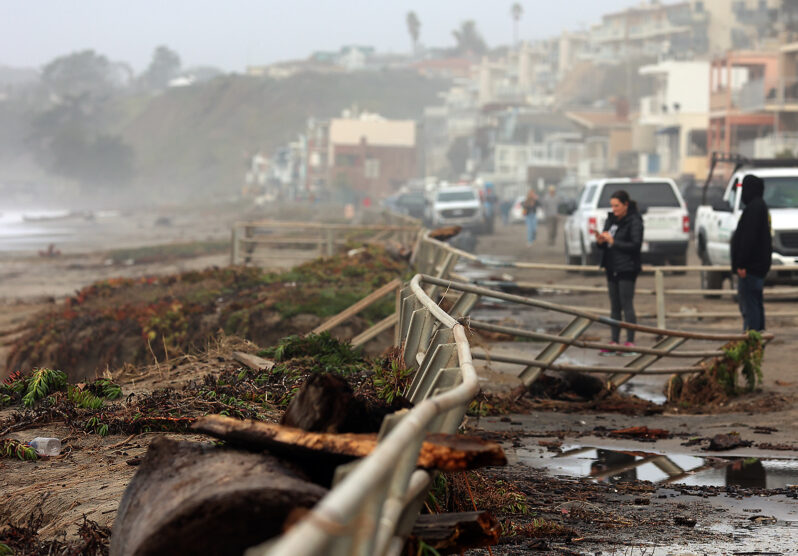
The damage caused by the climate crisis through extreme weather has cost $16m (£13m) an hour for the past 20 years, according to a new estimate.
Storms, floods, heatwaves and droughts have taken many lives and destroyed swathes of property in recent decades, with global heating making the events more frequent and intense. The study is the first to calculate a global figure for the increased costs directly attributable to human-caused global heating…
World’s Oceans Changing Colour Due to Climate Breakdown – the Guardian
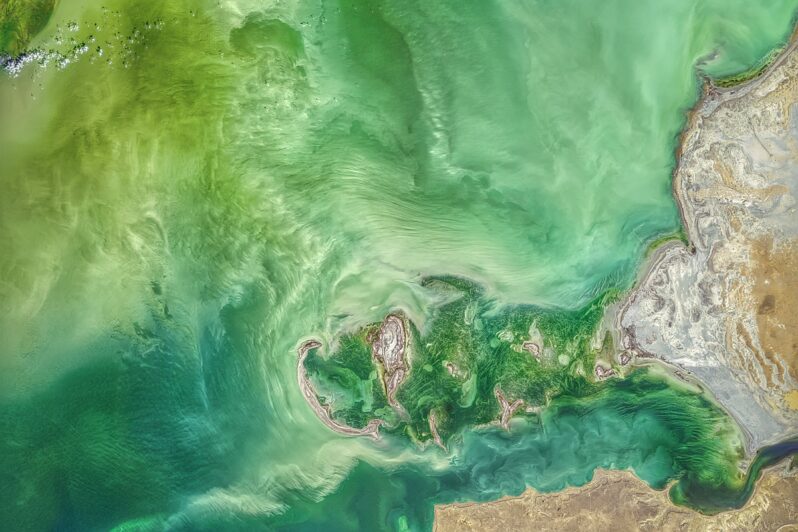
The sea is becoming greener due to changes in plankton populations, analysis of Nasa images finds…
From Jane to the Octonauts, Children’s TV is Taking on the Climate Crisis – Grist Magazine
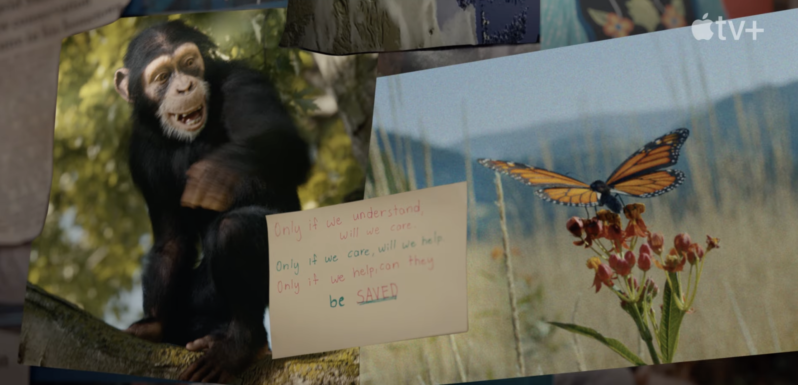
Olivia Dreizen Howell wasn’t seeking out a climate lesson when she and her kids, aged 7 and 9, tuned into Molly of Denali, a popular children’s show on PBS. But there it was: Molly, a 10-year-old Alaska Native and vlogger from the fictional village of Qyah, goes with her friends to visit an old clubhouse. Upon arriving, they find it has begun to sink into the ground. The episode, “Not So Permafrost,” follows Molly as she uncovers why her refuge is sinking in the first place. It served as an unexpected opening for Dreizen Howell and her family to discuss the climate crisis…
Comedians made some hilarious jokes about climate change. Were they right? – the Washington Post

Comedy is a lot like dumpster diving. You look at things in a different light than most people.
Stand-up comedians have long cast an amusing lens on our society, crafting observations about everything we might encounter, such as family, divorce, travel, a second divorce, pets and, more recently, climate change….
